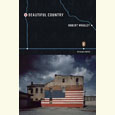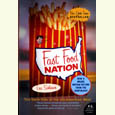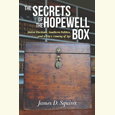Legal Literature
In an interview with Chapter 16, Scott Turow discusses Jeff Bezos, Monica Lewinsky, Warren Zevon, and his latest legal thriller, Identical
With nine bestselling novels and two books of nonfiction, Scott Turow, recipient of the tenth annual Nashville Public Library Literary Award, has proven himself a master of the legal thriller. His latest novel, Identical, explores questions of betrayal, family, and identity set against the sweeping political backdrop for which his books are famous. In connection with his acceptance of the NPL award on November 8, 2014, Turow answered questions from Chapter 16 in a wide-ranging email exchange about his three decades as a novelist, his opinion of Amazon’s dispute with Hachette, the very personal event that led to his novel about twins, and how he uses the Monica Lewinsky tapes to teach dialogue.
 Chapter 16: In addition to writing a string of bestselling novels, serving as president of the Author’s Guild, and contributing essays to leading publications, you remain a practicing attorney. The obvious question is, how do you do it all?
Chapter 16: In addition to writing a string of bestselling novels, serving as president of the Author’s Guild, and contributing essays to leading publications, you remain a practicing attorney. The obvious question is, how do you do it all?
Scott Turow: I’m very selective about what I do as a lawyer and have been for many years. I’m far from a full-time lawyer, and I have a lot of great help in the law office and in my literary office. Finally, I don’t recognize a lot of traditional time borders. I work when I need to and am in the mood. Nights and weekends are not out of bounds. I enjoy everything I do.
Chapter 16: In September, The New York Times published a story about Campfire, Jeff Bezos’s secretive retreat for top writers. The article describes the way many authors have become uncomfortable with the event because of Amazon’s ongoing dispute with Hachette. As someone who has been an ardent public defender of authors in the global digital marketplace, do you worry about retribution from Amazon?
Turow: No one can look at Amazon’s behavior and think that they would be above retribution. On the other hand, when Identical, my last novel, came out a year ago, Amazon’s editors chose it as the best mystery of the month, so I’m not on some global banned list. Amazon believes that capitalism is like bare-knuckles boxing, and there were authors who were reluctant to criticize them a few years ago. But the Hachette incident has shown that they are your partner only until they need to throw you overboard. I am lucky that I’ve had a long career as a successful author with more good years behind me than lie ahead, and as a lawyer I’ve learned to take strong positions for good causes. But I’m not holding my breath for another invitation to the Campfire.
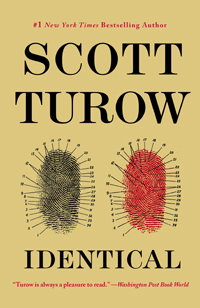 Chapter 16: In Identical you make use of a venerable literary trope: twins. What led you to make twins your principal characters?
Chapter 16: In Identical you make use of a venerable literary trope: twins. What led you to make twins your principal characters?
Turow: This is a fairly personal answer. My sister, who was born when I was almost three, was carried as a twin. After being told that two babies would come home from the hospital, I found that only one arrived. It was all the more a mystery because my dad was an ob-gyn who managed to deliver healthy, happy babies for everyone else. I became preoccupied with the baby who would have been my brother and thoughts of the “lost twin” were frequent in my childhood. This was a natural subject for me, one I had actually thought about most of my life.
Chapter 16: The novel also references Greek mythology in subtle and not-so-subtle ways. Was that your intention from the start, or did that pattern evolve with the story?
Turow: Well, as the answer above suggests, the lost twin loomed over my life in the large way of myth, so it was natural that I looked to the Greek myths for inspiration. The myth of Castor and Pollux, the so-called Gemini, identical but for the fact that one was mortal and the other immortal, early on suggested a plot twist that intrigued me. And I’d also spent a couple of years socializing in and observing the Greek-American community in Chicago. Many factors and interests flowed together.
Chapter 16: Many of your stories, including Identical, develop through gripping and often dramatic exchanges of dialogue. Do you have a special method for producing realistic human exchanges?
Turow: Dialogue is weird because it’s not a tape-recording of actual speech. Years ago, when I took a break from law practice to teach writing at Northwestern, I gave my students the transcripts of the tapes of the private conversations between Monica Lewinsky and Linda Tripp, the Republican operative who ultimately outed the Clinton-Lewinsky relationship, and asked them to turn it into dialogue. It was a good way to show the differences between speech as spoken and as written in fiction. But my good fortune is that I’ve always heard the characters speak in my head without any effort. When my youngest child was nine, we wrote a short story together, and I was knocked out to see how natural dialogue was for her. So maybe it’s in the wiring. I don’t know.
Chapter 16: I’ve heard there’s a reunion in the works for The Rock Bottom Remainders. What’s the story there? Think you’ll ever play music better than “Metallica writes novels”?
Turow: Like all great bands, the Remainders can only prove their greatness by reuniting once in a while to thrill a clamoring public—or else because somebody’s offering free cocktails. We did play at last year’s Miami Book Fair, and we’ve agreed to appear at the Tucson Book Festival next March. I’m not sure there’s really a great demand for this—but we all have a hell of a lot of fun. As for me, by the standards of a band where many members actually have some talent, I have none. I sing and occasionally hit the right note. I am there to prove that the rest of them don’t take themselves very seriously—or to make them look even better by contrast. I love them all, but in a blessed life, no privilege I have enjoyed has been more undeserved than appearing with the Remainders beside giant talents like Roger McGuinn, Judy Collins, or the late Warren Zevon. If life were really a meritocracy, I wouldn’t even be allowed to sweep the stage.
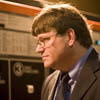
Michael Ray Taylor teaches journalism at Henderson State University in Arkadelphia, Arkansas. He is the author of three traditional books of nonfiction—Cave Passages, Dark Life, and Caves—as well as The Cat Manual, an ebook.

